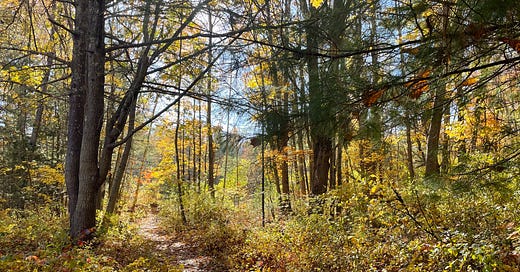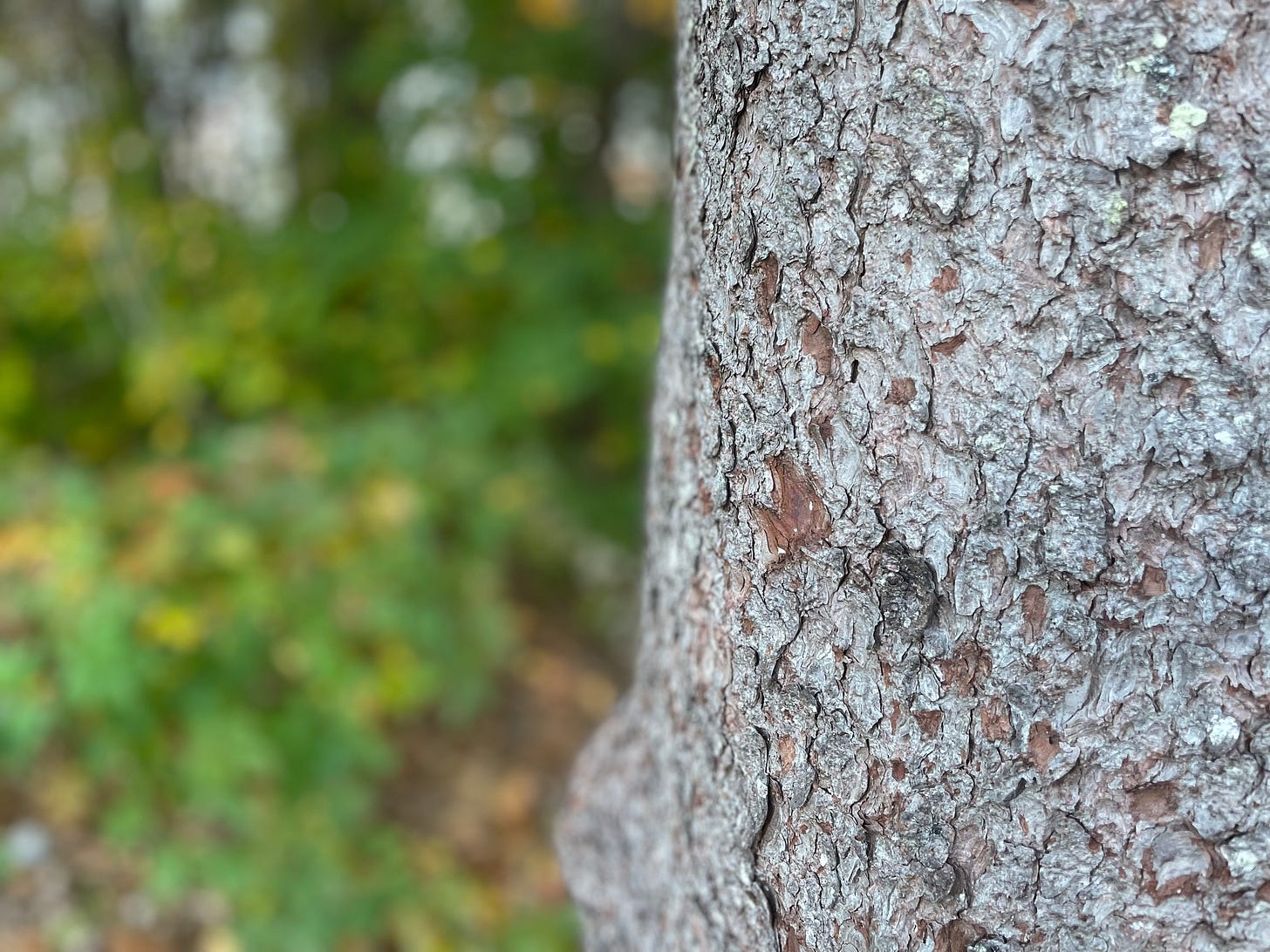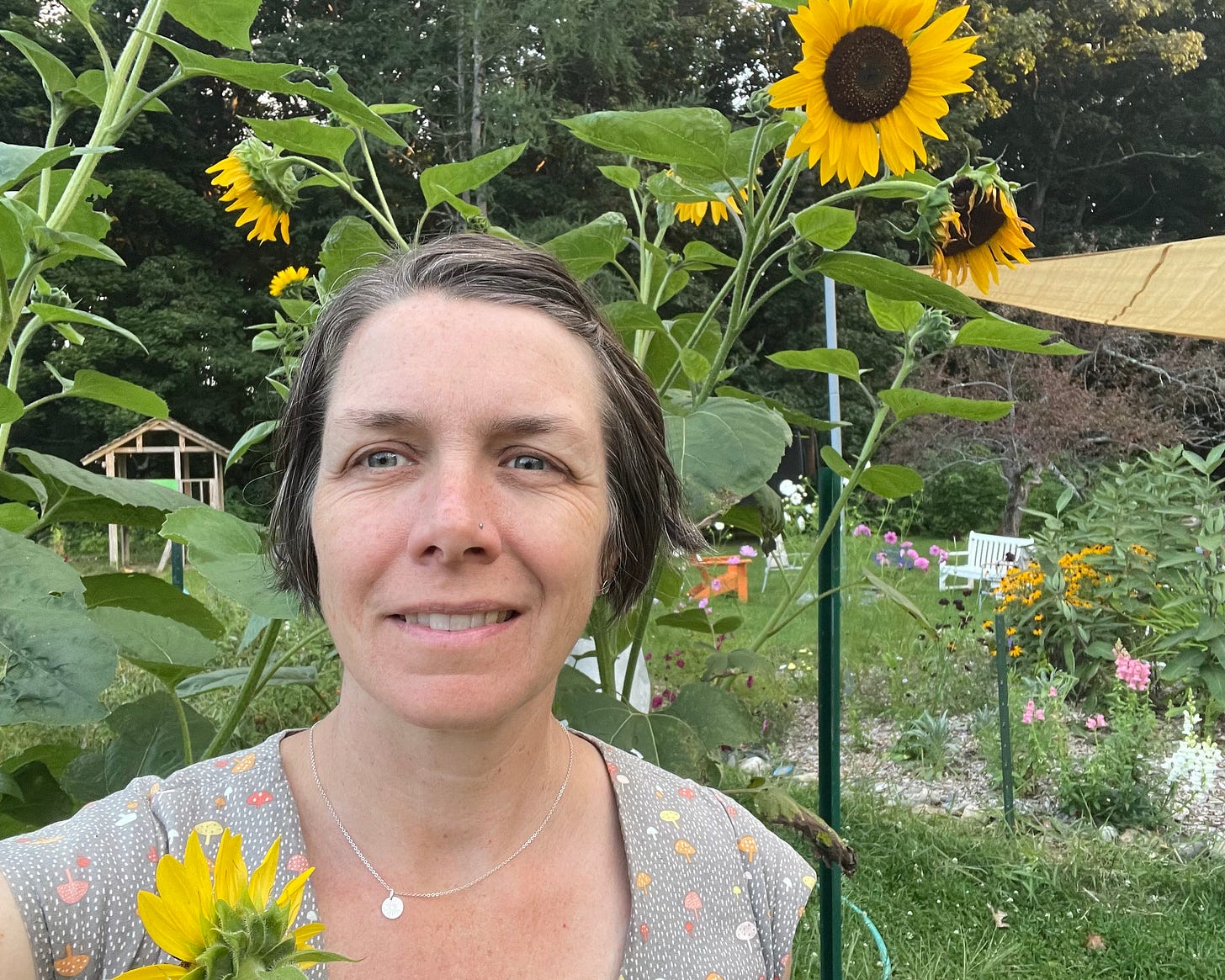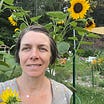Welcome to another guest essay on A Wonderful Mess. We have been lucky to have several guest essays in the last couple of months and we’ve got several more coming your way. It has been an absolute pleasure to share the stories of others. More stories are how we expand and deepen our understanding of parenthood. We don’t just look within but out and around, to see others on different paths. Or perhaps like today’s essay, off the path.
Today’s essay comes to us from
. Anna lives on the coast of Maine with her husband, two kids, and several chickens. She grows a big vegetable garden, unschools with her kids, and tries to practice every day creativity. She writes about her personal experiences with motherhood, creativity, living the little things, and always unlearning in her newsletter, .Anna generously shares with us the lessons learned when your children lead you off the expected path. I have been in the role of expert as mentioned by Anna, the one guiding parents towards the known and well-paved path. And I have also been the parent stumbling around in the bushes whose kid says that’s not the way for me. We can learn so much from each other when we are willing to witness the multitiude of ways a life can unfold.
Please enjoy a walk in the woods of parenthood with Anna. Thank you so much, Anna, for being in the mess with us.
If you’ve tried empathizing only to have your child scream louder, planned special time that didn’t come close to filling your child’s leaky cup, or organized meals around division of responsibility until your child started throwing guacamole, I can relate. If you find yourself throwing out parenting books that don’t seem to apply to your child and shutting off the podcasts with ideas that would never work for your family, I’m out here with you miles away from the well-worn path bushwhacking in the brambles, too. I wish I could give you a map, but I’m not sure one exists. I’ll share my dim flashlight and whatever snacks I can scrounge up from the bottom of my bag. I’ve got a few tools that can help, but most of all I want to remind you that you’re not alone.
Navigating the challenges of supporting a kid who doesn’t fit the mold, who can’t do the things that seem to come easily to other kids, can be an experience of grief and loss. After abandoning many hopes and expectations, you may be confronted with the anguish and uncertainty of not knowing the best ways to help your child. When expert advice doesn’t offer any solace, you might have to find the path that works for your family.
I never thought I would be a parent who gives my kids (mostly) unlimited screen time but this is one of the shifts that has allowed for more regulation and, over time, access to more activities out of our home. Any therapist or doctor I’ve talked to would frown on this approach but they are not the ones agonizing over melt downs, doing the painstaking work of unlearning societal expectations, and adjusting my own. Digging deep to discern my values and the needs of my children is far from easy, but it has allowed me to come closer to prioritizing what my family needs over the measurements used by others.
We live in a neuronormative world, flooded with pervasive ideas and expectations about how everyone should live, learn, eat, take care of their bodies, and interact with others. Of course these social constructs vary widely in different places and cultures but they can still feel inescapable. I’ve been lucky to learn from neurodivergent people that there are many ways to step away from the mainstream and find the approach to life that is supportive of each unique brain and body.
When we are open to shifting our perspectives, we can understand that no one should be forced to think and behave the way everyone else does. It can feel overwhelmingly scary to let go of typical standards and expectations but loosening your grip can allow you to see what is possible. Instead of focusing on fixing our children or constantly worrying about their futures, we can prioritize connecting with our kids. Of course I worry that the unconventional low-demand, unschooling approach that my family is taking might not be the right thing, but I know that I need to do what works best for my family right now. I want to be able to enjoy my children and our lives together more than I want to fit in or live up to someone else’s expectations.
When I feel mired in mud or wandering deep in the woods and I can barely see the path ahead, I try to take just one step at a time toward trust. Cultivating trust helps me to believe that there is space in our home and the world for each of us to be our fullest selves. Sometimes this means silently asking myself, What if we are right where we need to be? What if things will work out okay? I don’t know the answer, but asking the questions helps me to turn toward trust rather than fear. While growing trust in myself, I also make sure to pay attention to the things my kids value so they know that I support their interests and they feel trusted, too.
The work of unlearning society’s expectations may never end, but when I feel stuck I try to tune out the voices that say you’re doing this wrong. When I can set aside worries, even just for a few minutes, I can see more clearly what is actually happening right now. Most of the time, in this very moment, we are okay. Even if it feels like we are miles from where we should be, doing the opposite of what experts suggest, I can choose to focus on what is working for us right now, what we have learned, and the growth that really is there, even if it is hard to see.
Building trust and letting go of worries are essential tools for my journey but I would not have learned to use them without the community and connection I’ve found along this winding path. When we have no instruction book and far more questions than answers, there is infinite value in finding people who can relate to our challenges and joys.
The friends and family we already know may see our struggles but not be able to understand, which can feel even more lonely and isolating. But seeking out other parents who have similar experiences can be validating and life-giving. I have found that this is one of the great benefits of the internet and social media, allowing me to connect with people who really understand what I have been through.
It can really shift your perspective to discover that you’re not the only one who has holes kicked in the walls by an angry kid, that other parents also prepare plates of food that are uneaten or rejected, that they get what it’s like to spend hours in meetings with therapists or teachers, or have kids who spend all day watching YouTube or playing Minecraft. It is invaluable to connect with people who know the deep joy of being able to finally leave the house and go on a simple family outing, seeing siblings play together happily for the first time in months, or having a child ask to do something that once seemed impossible. There are many other families who can commiserate and offer solidarity while they know that you are supporting an amazing child who is so much more than the challenges you navigate every day.
I’m still deep in the trenches so I can’t tell you for certain that it will all turn out fine, but traveling this path has taught me greater empathy for all people and awakened a desire to make sure no one feels alone in their struggles. Wherever you may find yourself, remember you can breathe deep and focus on what your child needs, not what society says is best. You can take tiny steps towards trust, and you can reach for others who are on this journey. We are out there in the dark forest, cheering you on.
You can find more of Anna’s writing at
.








Thank you so much Anna for your essay!
As another family on an alternative path, this post got me right in the feels. Thank you Anna and Kathryn. 🥲